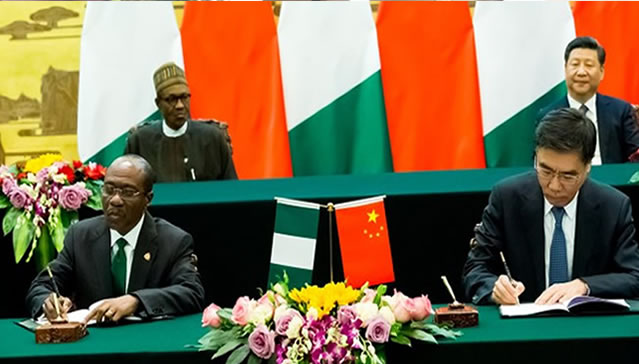The Central Bank of Nigeria (CBN) said the Nigeria-China currency swap deal would not cover the importation of the 41 items banned in its 2015 circular on items not valid for foreign exchange. CBN’s acting Director, Corporate Communications, Mr Isaac Okorafor, made this known in an interview in Abuja.
According to him, this will ensure the currency deal does not stifle local companies and make Nigeria a dumping ground for Chinese goods. Okorafor said the CBN had already taken adequate measures to ensure that doesn’t happen.
The CBN recently signed a bilateral currency swap agreement with the People’s Republic of China worth about N720 billion.
On June 23, 2015, the CBN placed a ban on accessing foreign exchange in the official foreign exchange market for the importation of some goods and services.
The aim was to encourage local production of these items, conserve foreign reserves, resuscitate domestic industries and improve employment.
Some of the items banned were rice, cement, poultry, tinned fish, furniture, toothpicks, kitchen utensils, table wares, textiles, clothes, tomato pastes, soap and cosmetics.
Also banned were private jets, roofing sheets, metal boxes, wire rods, steel nails, security and razor nails, ceramic tiles, glasswares, cellophane, plastic and rubber products.
Okorafor said with the Nigeria-China currency swap deal, the Naira was expected to appreciate against the US dollars as the demand for dollars eases.
“China accounts for a quarter or more of imports into Nigeria.
According to Okorafor him, once everything has been fine tuned, Nigerian entrepreneurs will be able to access renminbi through money deposit banks, using similar rules for the dollar.
He, however, stated that a clearing bank would be appointed for the transaction.
He said one of requirements for the appointment was that the bank must have a branch in China, which some Nigerian banks already have.
Okorafor said one of the advantages of the deal was that it would encourage Chinese companies to set up factories in Nigeria, which would lead to industralisation and job creation.






















